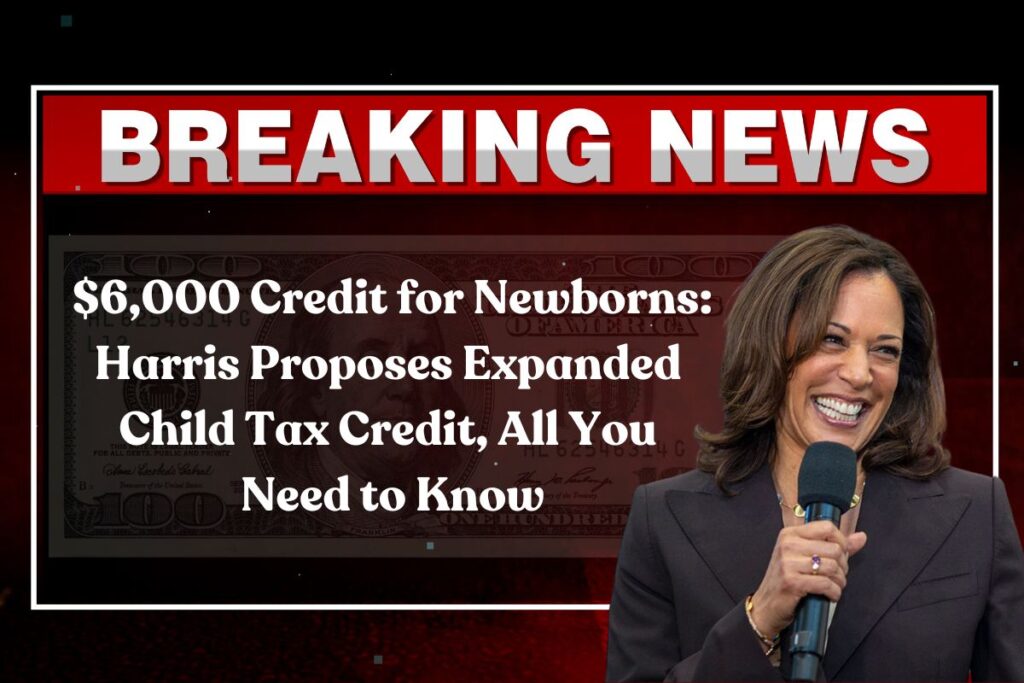An economic plan that Kamala Harris has made might have a big effect on middle-class households in the US. She recently presented a plan to introduce a $6,000 Credit for Newborns, with the goal of assisting families in the initial year of their child’s life. If one parent temporarily quits their job to care for the infant, this phase is frequently characterized by higher family costs and maybe lower income. The struggle against high costs and assistance for families are key campaign concerns for both Kamala Harris and her main rival, former President Donald Trump, in the current political environment.
Harris, meanwhile, has a particular difficulty: addressing the issue of high costs without taking the fallout for inflation a charge that is frequently leveled against President Biden. This is a delicate subject as inflation has been a recurring issue in the last several years. Any economic plan must successfully deal with inflation to avoid coming off as just another iteration of policies that some people think have led to price increases.
$6,000 Credit for Newborns
Democratic nominee for president Kamala Harris, who is running on a platform of economic policy reform, will present a number of policy recommendations, the most notable of which being a new child tax credit. A $6,000 child tax credit would be available to families throughout a newborn kid’s first year of life under the proposed legislation, according to Harris-Walz supporters. The bigger child tax benefit from the 2021 pandemic relief bill, which was applicable to older children but expired at the end of that year, would also be reinstated. According to the campaign, Harris would also increase earned income tax credits for childless homes, which would, on average, save lower-class workers $1,500.
Expanded premium assistance tax credits are also included in the proposal to help with the cost of purchasing health insurance on the exchanges established under the 2010 health care reform. As part of a campaign address in Raleigh, North Carolina, Harris is anticipated to go into detail on the economic rhetoric and policy ideas. In addition, she is anticipated to make public suggestions on housing and consumer cost reduction that the campaign has been previewing this week.
The $6,000 CTC proposal
Beyond merely creating a new tax credit, Harris’s proposal does more. Since it offered considerable financial comfort during a period of extreme economic uncertainty, Harris seeks to reinstate this provision, which was very well-liked by working families. This approach reflects Harris’s distinct perspective, which is that families have to be provided with the assistance required to guarantee their children’s wellbeing, especially in the formative years, when it is most vital to their growth.
Families would receive a significant amount of tax relief under this plan even more than they did during the peak of the previous stimulus programs. LI households were able to completely benefit from the cut since the credit also became fully refundable.
In terms of policy, the increased child tax credit took effect quickly. The U.S. Census Bureau estimates that the program helped 2.1 million children escape poverty; parents used the bulk of the funds for housing and food. However, the program was only in place temporarily. The maximum refundable child tax credit was reduced to $1,600 per child under the present law until it expired in 2022.

Harris Proposes Expanded Child Tax Credit
A new tax cut proposal from Vice President Kamala Harris will benefit working families and parents. Prior to Harris’s Friday address in North Carolina, her campaign made available information on her election-year economic policy agenda. A federal restriction on price gouging, assistance for states to eliminate medical debt, reduced housing and rental expenses, and tax breaks for citizens are the objectives of the proposals.
A fact sheet indicates that this period may be expensive for families who must lose wages in order to take time off to care for new born. According to representatives of the Harris-Walz campaign, the proposal put up by Harris includes a $6,000 credit for middle-class and lower-class families with children in their first year of life.
In addition, Harris has stated when campaigning that he supports paid leave, according to a campaign official. In addition, the campaign is suggesting several tax breaks for Americans in the working class. According to the campaign, one proposal would increase the earned-income tax credit for those without children, potentially resulting in a $1,500 tax savings. Another plan claims to reduce health insurance rates for Americans by $700 for those who use the Affordable Care Act marketplace.
Harris hopes to provide targeted aid that meets middle-class families’ urgent needs by putting up a $6,000 child tax credit, especially at a time when they are facing severe financial hardships. With less stress on them, parents will be able to attend to their children’s needs during that crucial first year of life without having to worry about money and that is the goal of this credit. It represents an understanding of the particular difficulties associated with becoming a parent in its early stages and a dedication to helping families through this time of change and development.
| Homepage | Click Here |

